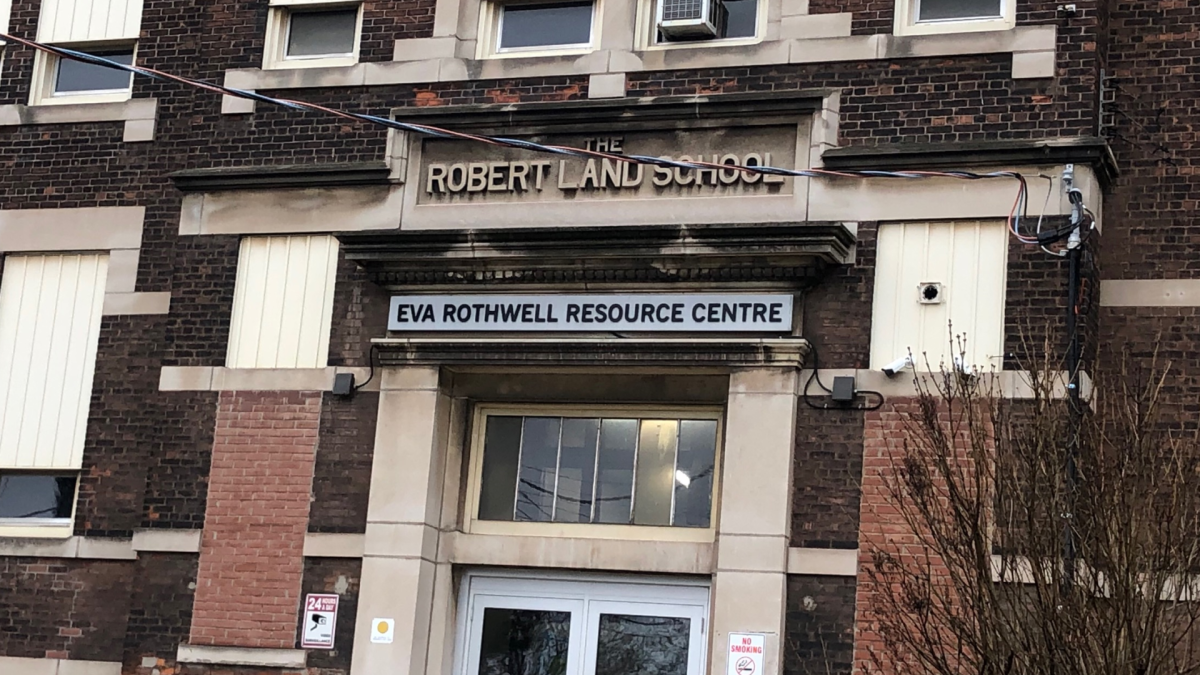A community hub in the lower city is looking to expand the services it offers to underprivileged Hamiltonians by adding a brand-new primary care clinic.

The Eva Rothwell Centre provides education and recreation programs to residents in the Keith neighbourhood and beyond, and the proposed health-care hub seeks to make it easier for those residents to access primary care.
Dr. Brian McKenna is the deputy lead physician at the Hamilton Family Health Team and the project lead on the initiative. He said providing direct care is the best way to improve outcomes for those who are most at risk.
“In addition to addressing the already existing needs (in the neighbourhood), you’ve got to get to people before they’re sick. And ideally, you’ve got to get to kids before they’re adults. And that’s the opportunity that bringing this program to the Eva Rothwell Centre is going to give us – to really change health and social trajectories in the long term.”
The need for more direct health-care services in Hamilton’s lower city, particularly within the L8L postal code, was highlighted by the Hamilton Spectator’s ‘Code Red’ series, and McKenna said that very little has been done to “move the needle” on health outcomes since the first piece was published in 2010.
Eva Rothwell’s founder Don MacVicar said local residents have told those working at the centre that they struggle with accessing primary care.

He said they heard from seniors who couldn’t get seen for medical issues because of mobility issues, as well as young mothers whose infants had health complications that would go unaddressed.

Get weekly health news
With a primary care clinic located directly in a community hub that people are already using, MacVicar said it will “break down all those barriers” to health care that currently exist.
The centre already serves the community with a number of programs, including Mohawk College’s City School initiative, which offers low-income residents access to postsecondary education and training for free.
Lori Morgan, chair of the board at Eva Rothwell and Mohawk’s chief marketing and recruitment officer, said the centre has been established as a comfortable and safe place for the community to seek assistance, and while they’ve had wellness programs in the past, they’ve never been on such a direct level.
- After controversial directive, Quebec now says anglophones have right to English health services
- Something’s fishy: 1 in 5 seafood products are mislabelled, study finds
- Why non-alcoholic beer is gaining steam at Oktoberfest: ‘Nobody will judge you’
- Recall expands for Nutrabolics vegan bars over undeclared milk
“Oftentimes with things like this, they’ll come in for support, but we have to refer them out to other agencies,” she said. “Adding the convenience of having it right in the centre, we’re more likely to see our community getting the care that they need, and a lot of that can be life-changing. So we’re very excited about that.”
Morgan also said having an in-house clinic could potentially open up new opportunities through City School to do more health-care training in the community.
It will cost $300,000 to complete renovations that would involve demolishing the current kitchen and turning the space into a medical clinic, as well as refurbishing an entirely new kitchen space.
That work would take up to six months in total but if the centre can raise the money to start work this spring, it could be ready to open by September.
Conversations are underway with what McKenna refers to as a “short list” of philanthropists to raise that money but he said additional help is always welcome from other donors.
In order to make it a wide-scale and sustainable model that can be replicated in other communities, however, McKenna said the initiative would need provincial funding.
“In order to scale this, we need more health-care hubs. We need greater numbers of health-care providers under fewer numbers of roofs so that we can really start to not only take a population health approach but measure it from day zero. We need to be better as a sector of measuring impact and adapting in real-time.”











Comments